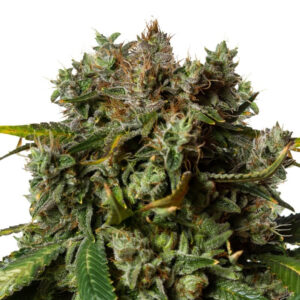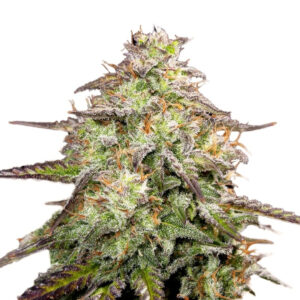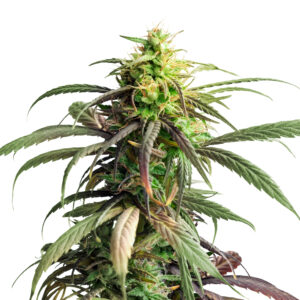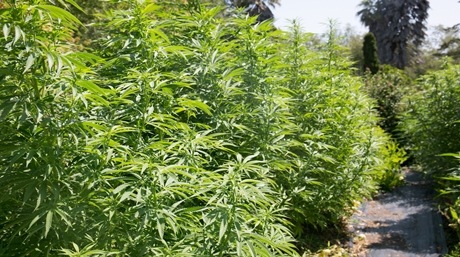 By:
Justin Time
By:
Justin Time
Note that the three licensing boards that we have discussed above have different waste management requirements. Not all marijuana cultivators and processors licensed by Calcannabis are supposed to dispose of waste unrecognizable or unusable.
Those who specialize in manufacturing cannabis products and are licensed under the Manufactured Cannabis Safety Brunch are expected to render the marijuana products or waste unusable and unrecognizable upon leaving the licensing agency.
Typically, the waste of cannabis is regarded as organic waste only if it does not contain any toxic or hazardous materials. According to the laws governing the disposal of cannabis waste, organic waste (solid waste) cannot be composted on-site.
This has also been discussed in the laws of licensing agencies such as the Bureau and Calcannabis. Since the solid cannabis waste is not composted onsite, where is it taken to? The rules governing its disposal give directions about who can haul the debris of marijuana to the sort of solid waste facility it can be taken to.
The cannabis rules and regulations governing organic waste disposal mention various facilities that accommodate solid waste. This is why it is crucial for cannabis cultivators, to have detailed information concerning which facility that suits their needs.
On the other hand, the solid waste facilities manage solid/organic waste according to rules and regulations discussed by titles fourteen and twenty-seven. The locally approved haulers dealing with municipal solid waste take part in the collection of solid waste.
Can the haulers collect the organic waste derived from cannabis? Yes! According to the law, marijuana waste is solid/organic waste. The haulers can collect and recycle it like any other solid waste they process.
Following the new laws, any business that produces two or more cubic yards of organic waste every week must recycle its solid waste to prevent environmental pollution. The cannabis cultivators that produce over two cubic yards of solid waste per week must compost onsite or haul it to any facility that recycles solid waste.
The cultivators can also call the haulers to come and pick up the organic waste. However, all these activities require licenses for the entire operation to continue. What about the licensing issues? Keep reading the article for more information.
Since the law considers cannabis waste as organic waste, there might be no special license required for the cannabis cultivators to transport the waste. However, there are various requirements that you should have at the local level for the activities to continue.
This means that you should consult your local administrative system before you begin transporting the organic waste. If you would like to operate a solid waste facility, you should contact the agency that deals with licensing organic waste facilities.
Contrary, a cannabis processor is responsible for grading, drying, trimming, and storing the non-manufactured content of cannabis. To work as a cannabis processor, you should be licensed by Calcannabis. You can also visit the licensing agency for further clarification if you have the intention to venture into the business.
There are numerous questions among many cannabis cultivators who want to know if the law can allow them to haul the organic waste to a licensed facility by themselves. To clear these speculations, this article has gathered information concerning the areas where cultivators can haul cannabis waste, as mentioned below.
In addition, solid waste has other guidelines to abide by before hauling any solid waste to a facility. Some of these guidelines are:
Note that you should always carry out the above activities according to the rules and regulations courtesy of Calcannabis. Solid waste facilities manage and handle waste with regard to the laws governing waste management.
The Waste Management Plan plays a significant role in managing cannabis waste from different cultivators by collecting vibrant information. However, the information concerning waste management from different cultivators is the same despite the compost area’s volume and size.
All the necessary information concerning the waste management plan is displayed in section 8108 of the Calcannabis laws. Section 8308 of the law also gives further guidance concerning excellent means of waste management. Calcannabis has a website where there is detailed information concerning cannabis waste management.
Cannabis cultivation requires frequent inspection to produce quality products. The cannabis investigators inspect all the cannabis cultivators in different parts of the world. However, they conduct the cultivators in advance, or sometimes they come unannounced.
On other occasions, the waste generated by cannabis is classified as agricultural material. According to the Calcannabis laws that govern cannabis waste, agricultural materials are also referred to as green material. This means that cannabis waste can be handled as green material or agricultural material.
Note that there are different ways of composting cannabis waste. You should have definite information concerning the mode you choose to use when composting cannabis waste. The Local Enforcement Agency performs the inspection of waste composting and abides by the stipulated health requirement.
Remember that cannabis waste might have adverse effects on the cultivators if they do not take the necessary precautions. These health protocols are meant to ensure that the cannabis cultivators are safe and the cannabis waste is taken to the right place for further processing.
Many people wonder whether cannabis waste can be recycled in a facility that recycles common organic waste. This is possible since cannabis waste is also regarded as organic waste. However, it should not contain any toxic or hazardous contents.
Those who have licensed facilities for recycling cannabis waste have the responsibility to do their work in accordance with the laws governing the process. The law says that cannabis waste is a sort of organic waste, and organic waste can be handled in any facility that manages solid waste.
Cannabis cultivators should understand that there are no requirements for marijuana licensing boards. The boards do not require solid facilities to submit the receipt of cannabis waste to any federal agency.
Also, no law says that a facility’s operator must only accept a particular organic waste type. It is the decision of the operator whether to accept the cannabis waste or not. Contrary, the law says that if the facility is meant for the public, then the operator should craft a list that displays the types of waste that he accepts and the ones he doesn’t accept.
Note that cannabis waste should not be toxic for it to be accepted in any organic recycling facility. Marijuana cultivators should understand that cannabis products that are not authorized to the marketplace due to disease or tasting issues should also be handled in the same manner as cannabis waste.
The affected cultivator should abide by the law regarding the disposal of the products. Many cannabis cultivators are eager to know if it is advisable to till back the cannabis waste back into the soil. Yes! This is also an excellent way of disposing of the waste of marijuana.
In most cases, local haulers are the ones who transport the waste to the facility. Who is a local hauler? A local hauler is a certified service provider in a particular county or city on a contract basis. However, authorization to haul cannabis waste in a specific county does not allow the hauler to haul in another county.
Cannabis cultivators should always ensure that the waste is secured in a specific area that is certified and inspected by members of the respective board. Locking the site provides an extra level of security, although it is not supposed to be closed.
Cannabis cultivators should stay compliant with the laws of the respective licensing agencies. It doesn’t matter whether you are a cannabis manufacturer, processor, or cultivator; you should always stay in line with the required rules and regulations.
Any cannabis business that fails to abide by the respective agency’s laws is charged in a court of law. However, the laws governing waste management are the same regardless of the agency. Do you know that there are waste management plans for cannabis? Read more in this article.
The agencies that govern all the cannabis activities ranging from dispensary stores, distributors, and labs to retailers, need all the marijuana dealers to render any waste, whether unusable or unrecognizable.
The Manufactured Cannabis Safety Branch is responsible for overseeing the manufacturers of the marijuana products that are meant to be inhaled, either consumed or used topically. The Calcannabis agency also takes part in monitoring the cannabis cultivators together with nurseries.
The agency ensures that its members do not depict any waste material, whether unrecognizable or unusable before the waste is transported from its original location or business. This is to ensure that all the waste is taken to where it is supposed to be.
Any cannabis-related business must dispose of its waste in an area that is well-secured and only accessed by specific individuals. The locally approved haulers are the only individuals who should be authorized into the premises.
Cannabis dealers should keep in mind that after they have removed the waste from their original packages, it should be kept in an air-tight container with a biodegradable lining. On most occasions, this is one of the precautions that most dealers tend to assume.
After you have disposed of the waste in the required premises, contact a locally approved hauler who will come and examine the receptacle. The hauler will then come back with his team and clear the waste containers.
The haulers also take part in updating the cannabis dealers on the recent waste management plan to ensure that everybody dealing with cannabis is well informed. In addition, they monitor the cannabis products as they move throughout the supply chain to the consumer.
As discussed earlier, cannabis waste is a form of organic waste unless mixed with other toxic materials. Being an organic material means that the waste can be recycled into other useful products.
Rather than leaving the waste-filled into the environment and generating harmful gases, we can convert it into something new. These new products are developed through a scientific process that is carried out in a composting facility.
Cannabis dealers should consider looking for a hauler with whom they will work together on a partnership basis. Also, they should look for a hauler who specializes in composting and recycling cannabis waste.
Generally, the best waste management plan should consider the safety of the environment. Most haulers who compost and recycle cannabis waste also recycle other forms of debris such as papers, and plastics among different types of waste.
When most cannabis companies are given waste management laws, they feel like they are tied up. This is where the disposal company comes in to offer guidance to the cannabis company. After acquiring fast-hand information, the company can find various ways of disposing of cannabis waste excellently.
What is the immediate step toward disposing of cannabis waste responsibly? You begin by diluting the cannabis; although it may seem to be wasteful, this is what the Environment Protection Agency needs all the companies to render their waste, whether unrecognizable or unusable, prior to disposing of it.
This involves grinding and mixing the cannabis waste with non-consumable organic scraps such as food waste or cardboard. Once the mixture becomes unpalatable, the mess occurs.
If the cannabis company decides to take its waste for composting, a certified hauler from the company to the composting facility should transport it. Remember to go for a composting facility that has been certified by the respective board.
Is there any composting facility near your area? If not, then don’t worry since there are more options. You can take the cannabis waste and feed it into a solid waste digester in any wastewater plant. If you have any wastewater plant that produces methane, then you are more advantageous.
What is the use of methane gas? The methane gas is used as fuel for vehicles in the city. It is now clear that you have a variety of options on where to take cannabis waste. No waste management plan forces cannabis companies to take their waste to a specific place. The company has the decision to take the waste in any facility.
Cannabis companies should also note that cannabis waste would only be accepted if it is not subjected to any toxic materials. Why do waste companies reject cannabis waste that has poisonous materials? Hazardous/toxic materials are tedious to eliminate from the environment, thus tiresome to recycle.
Generally, cannabis is regarded as an agricultural plant that is extremely prone to pesticide contamination. When this plant reaches a certain level, the pesticides convert the cannabis debris into harmful waste. This means that when the waste is disposed of to the environment, it may result in serious environmental effects.
In addition, when a cannabis company produces such waste, the process of eliminating it from the environment takes a long time and is costly. In addition, the facilities that accommodate these types of waste are not easily found in most regions.
Hauling this contaminated waste from the company to the facility is relatively expensive, and specialists have to inspect the waste before transportation. Note that subjecting your cannabis plant to pesticides affects the final waste of the product.
In conclusion, the disposal of cannabis waste is a sensitive activity that all cannabis dealers should be keen to observe. Cannabis dealers should follow the guidelines to eliminate the potential adverse effects caused by the reckless disposal of cannabis waste.
For more pieces of thought-out reads, consistently visit our blog section and add more knowledge to your bucket list.
1. Can cannabis waste be composted onsite?
2. Are cannabis cultivators allowed to transport their own waste?
3. Does cannabis waste require special handling?













Related Posts

Once you plant it, it will do what mother nature intended; it will grow. However, if you want it to flourish you should avoid making the following rookie mistakes.

When it comes to cultivating cannabis, finding affordable yet high-quality marijuana seeds can be a game-changer. Whether you’re a seasoned grower or a beginner, this comprehensive guide will walk you through everything you need to know about cheap marijuana seeds.

We have carefully selected a few of the best tips to grow bigger yields. Have a look, and get growing 😉